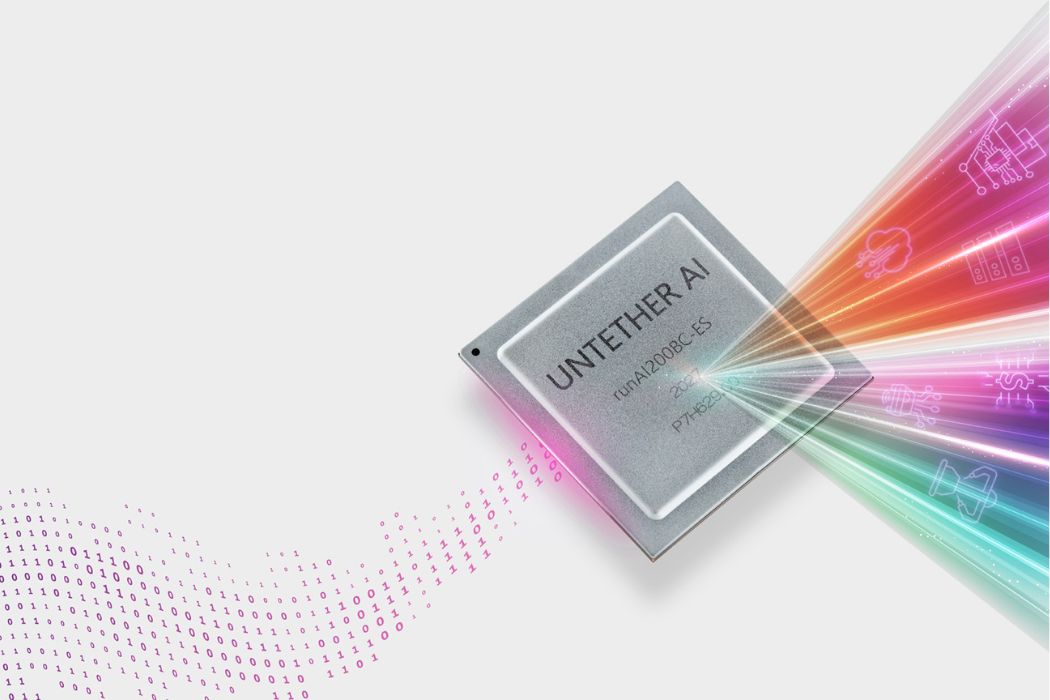Business
Untether AI Files for Bankruptcy After AMD Acquisition Deal

The Toronto-based artificial intelligence chipmaker Untether AI has filed for bankruptcy following its recent acquihire by Advanced Micro Devices (AMD). This filing, made on October 14, 2023, comes after Untether ceased operations earlier this year, transferring its software and AI hardware engineering teams to AMD, a significant competitor to Intel and Nvidia.
The bankruptcy documents reveal that Untether AI has approximately $25 million in assets but faces liabilities exceeding $128 million. The company cited a “lack of working capital/funding” as the primary reason for its financial struggles. Reports from The Globe and Mail indicate that Untether’s fundraising efforts were severely impacted by Nvidia’s stronghold on the AI chip market and economic uncertainties related to tariffs imposed by the United States.
Financial Overview and Creditor Details
Untether AI’s statement of affairs shows a significant deficiency of $103.6 million, with most of its liabilities owed to unsecured creditors. These include major investors such as Middlefield Ventures, which is owed $33 million, and Radical Ventures, which is owed a combined total of $28.5 million across two funds. Other notable creditors include TCM-Untether Holdings and two funds from General Motors Ventures, totaling nearly $20 million and $18.3 million, respectively.
Untether AI’s only other assets consist of its intellectual property and lab equipment, both valued at just one dollar. The statement was signed by Tomi Poutanen, a co-founder and partner at Radical Ventures, which had been a significant backer of Untether.
Background and Market Challenges
Founded in 2018 by Martin Snelgrove, Darrick Wiebe, and Raymond Chik, Untether AI aimed to design chips that could enhance AI workloads. The company promoted its products as being faster and more energy-efficient compared to those from competitors. Over its operational lifetime, Untether raised approximately $152 million USD (around $208 million CAD), with a substantial $125 million USD raised in 2021 alone.
In early 2024, Chris Walker, a veteran from Intel, took over as CEO, succeeding Arun Iyengar. Walker’s tenure was short-lived, as he departed just one month before the acquisition deal with AMD. At that time, he had indicated to BetaKit that the company was actively seeking funding.
Untether AI’s financial troubles reflect broader challenges faced by Canadian companies in the tech sector, particularly due to tariffs and economic pressures. Other firms, such as the Montreal-based fashion retailer Ssense and Toronto’s sleep tech company Smart Nora, have also faced insolvency this year.
The recent trend of Canadian AI hardware companies seeking support from U.S. firms includes acquisitions like Nvidia‘s purchase of CentML and Tenstorrent relocating to the United States for funding opportunities.
Despite the challenges faced by Untether AI, its founding team, including Snelgrove and Chik, has embarked on a new venture, establishing Hepzibah AI in Toronto. This company aims to continue the development of energy-efficient computing solutions. According to Allen Lau, co-founder of Two Small Fish Ventures, his firm invested an undisclosed amount into Hepzibah last year, signaling a continued interest in innovative technologies.
As the story of Untether AI unfolds, the implications of its bankruptcy and the ongoing evolution of the AI hardware landscape remain to be seen.
-

 Science4 months ago
Science4 months agoToyoake City Proposes Daily Two-Hour Smartphone Use Limit
-

 Health4 months ago
Health4 months agoB.C. Review Reveals Urgent Need for Rare-Disease Drug Reforms
-

 Top Stories4 months ago
Top Stories4 months agoPedestrian Fatally Injured in Esquimalt Collision on August 14
-

 Technology4 months ago
Technology4 months agoDark Adventure Game “Bye Sweet Carole” Set for October Release
-

 Lifestyle4 months ago
Lifestyle4 months agoVictoria’s Pop-Up Shop Shines Light on B.C.’s Wolf Cull
-

 World4 months ago
World4 months agoJimmy Lai’s Defense Challenges Charges Under National Security Law
-

 Technology4 months ago
Technology4 months agoKonami Revives Iconic Metal Gear Solid Delta Ahead of Release
-

 Technology4 months ago
Technology4 months agoApple Expands Self-Service Repair Program to Canada
-

 Technology4 months ago
Technology4 months agoSnapmaker U1 Color 3D Printer Redefines Speed and Sustainability
-

 Technology4 months ago
Technology4 months agoAION Folding Knife: Redefining EDC Design with Premium Materials
-

 Technology4 months ago
Technology4 months agoSolve Today’s Wordle Challenge: Hints and Answer for August 19
-

 Business4 months ago
Business4 months agoGordon Murray Automotive Unveils S1 LM and Le Mans GTR at Monterey








